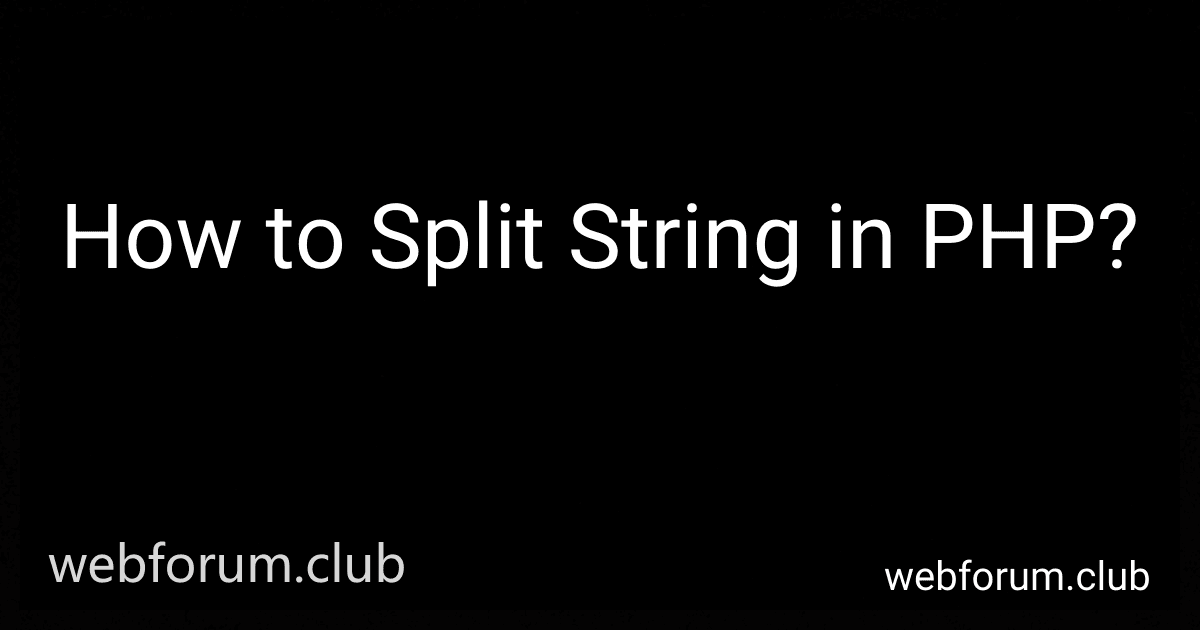PHP is a popular programming language that is widely used for web development. It is a server-side scripting language, which means it is executed on the server rather than the client's browser. PHP stands for "Hypertext Preprocessor" and was originally created in 1994 by Rasmus Lerdorf.
One of the key features of PHP is its ability to interact with databases, making it suitable for building dynamic web applications. PHP can connect to various databases like MySQL, PostgreSQL, and Oracle, allowing developers to create, retrieve, update, and delete data from these databases.
Another significant advantage of PHP is its simplicity and ease of learning. The syntax of PHP is similar to C and Perl, making it relatively straightforward for developers who are familiar with those languages. Additionally, PHP has a large and active developer community, meaning there is extensive documentation and support available.
PHP supports various frameworks that enable developers to streamline the development process and build scalable and robust applications more efficiently. Some popular PHP frameworks include Laravel, Symfony, and CodeIgniter. These frameworks provide pre-built modules and libraries that simplify common web development tasks, such as routing, database management, and form validation.
Furthermore, PHP integrates well with HTML and CSS, allowing developers to seamlessly embed PHP code within HTML documents. This embedded PHP code is executed on the server before the HTML is sent to the client's browser, enabling dynamic content generation based on user input or data from databases.
In recent years, PHP has also made significant performance improvements. The latest versions, PHP 8, offer faster performance and reduced memory consumption. Additionally, PHP 8 introduces new language features and syntax enhancements to make code more concise and readable.
Overall, PHP is a versatile programming language that has gained popularity due to its simplicity, database connectivity, vast community support, and compatibility with other web technologies. It continues to be widely used in web development for various applications, ranging from small personal websites to large-scale enterprise systems.
How to split string in PHP by space?
To split a string in PHP by space, you can use the explode() function. Here's an example:
$string = "Hello World"; $parts = explode(" ", $string); print_r($parts);
Output:
Array ( [0] => Hello [1] => World )
In the code above, the explode() function takes two parameters: the delimiter (in this case, a space) and the string to be split. It will split the string at each occurrence of the specified delimiter and return an array of the resulting parts. You can then iterate over the array or access the individual parts as needed.
How to split string in PHP by comma?
To split a string in PHP by comma, you can use the explode() function. explode() splits a string into an array using a specified delimiter. In this case, the delimiter will be a comma.
Here's an example:
$string = "apple,banana,orange"; $splitArray = explode(",", $string);
// Print the split values foreach ($splitArray as $value) { echo $value . ""; }
Output:
apple banana orange
In the example above, the explode() function splits the string "apple,banana,orange" into an array using a comma (,) as the delimiter. Each value before, between, and after the commas becomes a separate element in the resulting array. Finally, the values are printed using a foreach loop.
